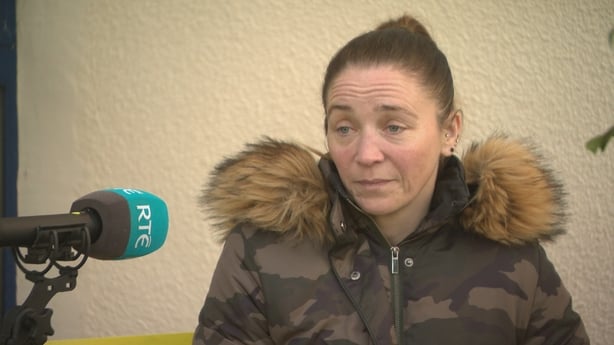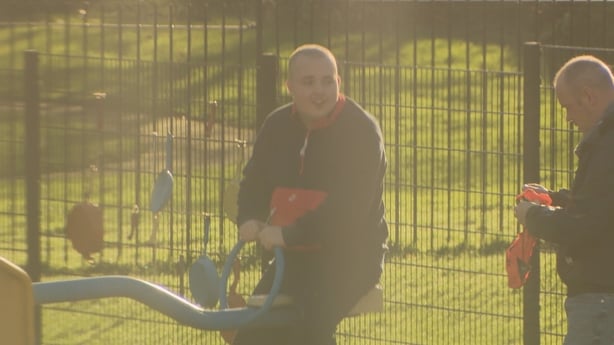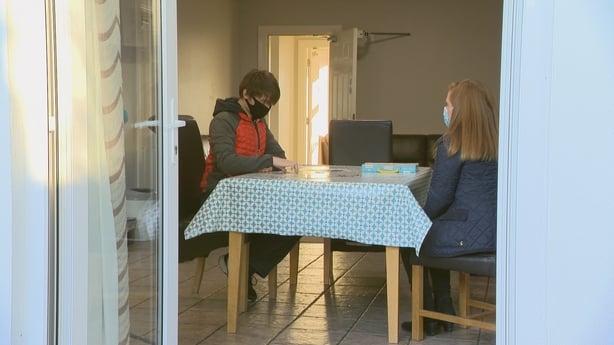The UN says an integrated approach is required to ensure that people with disabilities are not left behind after the pandemic.
Today is international day of persons with disabilities, which is important this year, considering the challenges people with disabilities have faced due to Covid-19.
Most respite and clinical services closed when the first set of restrictions were introduced in March.
They have been opening since September; however, the majority are not running at full capacity and may not be for some time.
One service that remained open throughout the pandemic is St Paul's Child and Family Centre in Beaumont, Dublin 9.
It was set up by the Sisters of Mercy 50 years ago.
It delivers clinical supports and respite services to children who have Autism Spectrum Disorder. Most of them also have an intellectual disability.
Some of the children have additional needs, such as ADHD or sensory needs, and 50% of them are non-verbal.
The children at St Paul’s thrive on routine, so staff pulled together and kept services open, to help families cope with restrictions.
Lynn Rochfort’s teenage son Peter has been in the service since he was five years of age. The continuation of services this year has been invaluable.

Lynn was more terrified about services closing than Covid-19 in March.
"It’s the only thing you have to cope. It’s that bit of respite to give you time to breathe again and reset to carry on coping again. If it wasn’t for St Paul’s I wouldn’t cope," she said.
Peter has autism and a severe intellectual disability.
At 16 years of age, he’s physically large and he has two male carers at the centre.
He spends much of his school day outside in the playground, which is his classroom.

It is also located next to Jean Culleton’s office, so Peter is regularly brought to the person with responsibility for administration and payroll to say hello.
She communicates with him through some sign language, taught to her by the carers.
So, how did Jean get embroiled in sign language and window kisses?
"St Paul’s isn’t just a job," she said. "You can’t just sit here and do sums and see the kids outside, you have to join them.
"It’s a happy place and a good place, the staff are amazing. I’m safe in here, so I don’t know how they do it," she said, pointing to the carers outside.
"With everything that has happened this year, and none of them complained or rang in sick, they’re amazing."
When the pandemic hit in March, the management team at St Paul’s worked with staff to continue to deliver services as safely as possible.
Medical Director Dr Carole Cassidy said: "The decision was made early on to continue overnight respite for a small number of children who were at a particularly high level of need and then for the majority of children we adapted that service to a day respite service."
Dr Cassidy says the process was reviewed regularly.
"We did have one positive case of Covid amongst staff and one unrelated positive case of Covid among the children, but following strict public health and HSE guidelines, we were able to ensure that didn’t infect anyone else," she said.
Service manager Claire Bowe said without the commitment of staff, it would not have worked. She said the best way to explain how they did it is by starting at the end.
"We wanted to get through the pandemic and be able to look back and say families were supported, families were still able to receive a service and by having that in mind we thought, well how do we do that? So, it did involve changes to services but it was really about making sure it happened," she said.
Five minutes around the corner, we visit one of the respite services, where 17-year-old Alan Graham has arrived for the night.

He is unperturbed by the pandemic. He likes respite and it’s evident that he feels safe.
Lina Plycevaityte, who is the person in charge at the house, said they managed to keep respite open by following public health guidance, keeping it simple and keeping infection control measures in place.
"We just wanted to keep the routine going as much as we could because everything else was closed", she said. "It’s important to keep normality going in life and to support families."
The houses can normally accommodate up to four children per night, but at the moment, it’s two.
St Paul's is celebrating its 50th anniversary this year, but 2020 will go down in history books as the year it was one of the few services to continue to operate through a pandemic.






